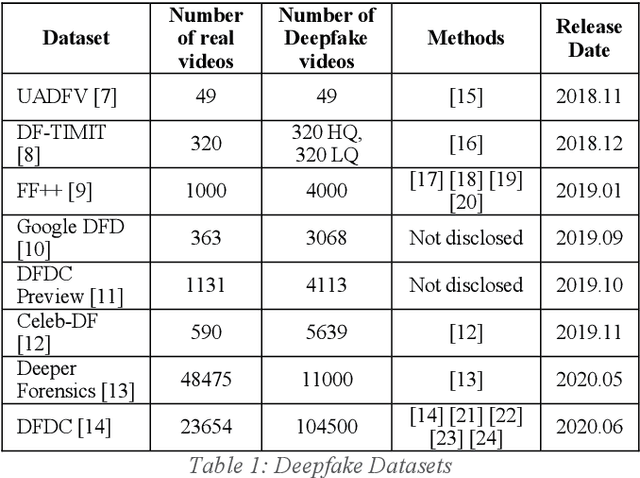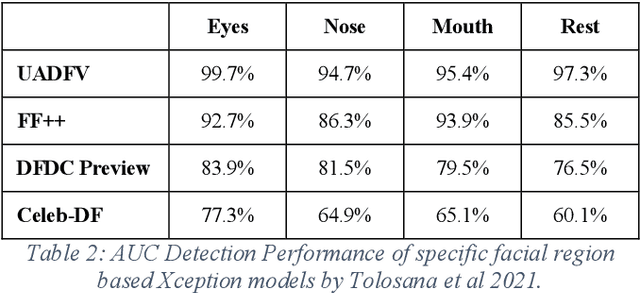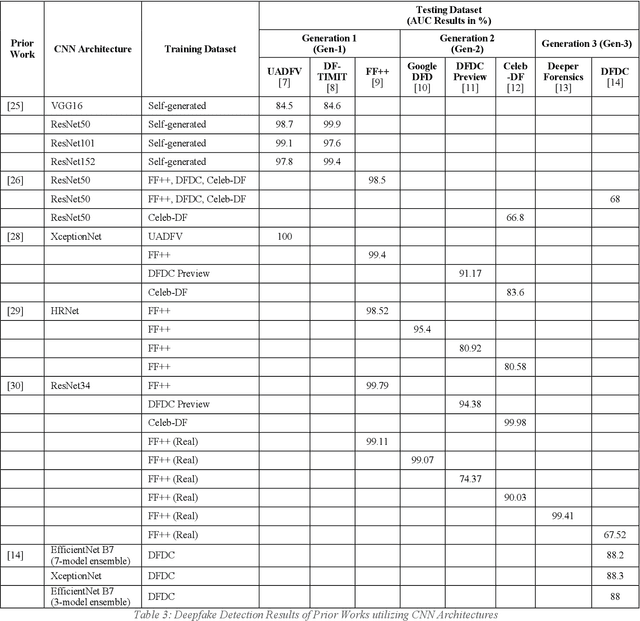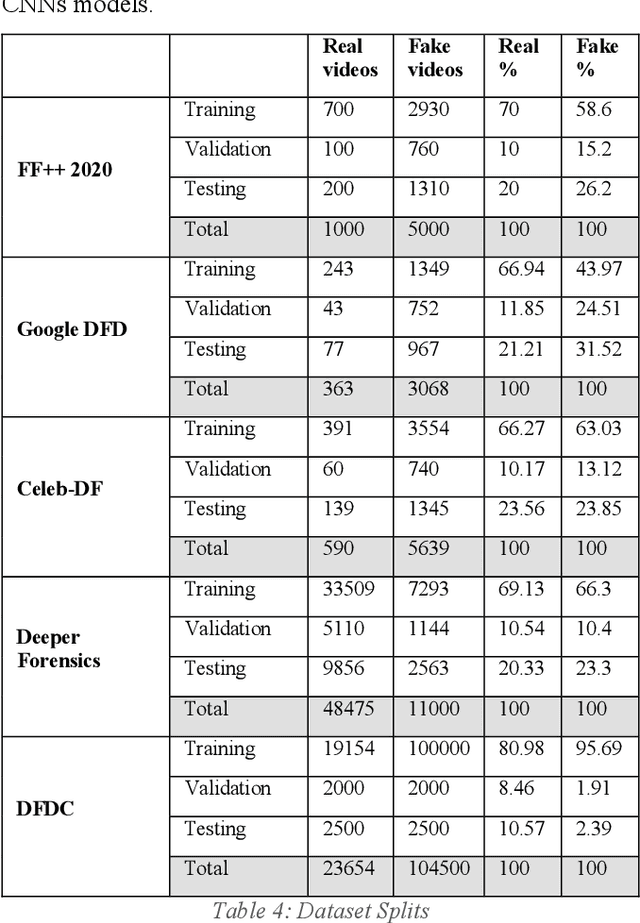Deepfake Detection with Deep Learning: Convolutional Neural Networks versus Transformers
Paper and Code
Apr 07, 2023



The rapid evolvement of deepfake creation technologies is seriously threating media information trustworthiness. The consequences impacting targeted individuals and institutions can be dire. In this work, we study the evolutions of deep learning architectures, particularly CNNs and Transformers. We identified eight promising deep learning architectures, designed and developed our deepfake detection models and conducted experiments over well-established deepfake datasets. These datasets included the latest second and third generation deepfake datasets. We evaluated the effectiveness of our developed single model detectors in deepfake detection and cross datasets evaluations. We achieved 88.74%, 99.53%, 97.68%, 99.73% and 92.02% accuracy and 99.95%, 100%, 99.88%, 99.99% and 97.61% AUC, in the detection of FF++ 2020, Google DFD, Celeb-DF, Deeper Forensics and DFDC deepfakes, respectively. We also identified and showed the unique strengths of CNNs and Transformers models and analysed the observed relationships among the different deepfake datasets, to aid future developments in this area.
 Add to Chrome
Add to Chrome Add to Firefox
Add to Firefox Add to Edge
Add to Edge